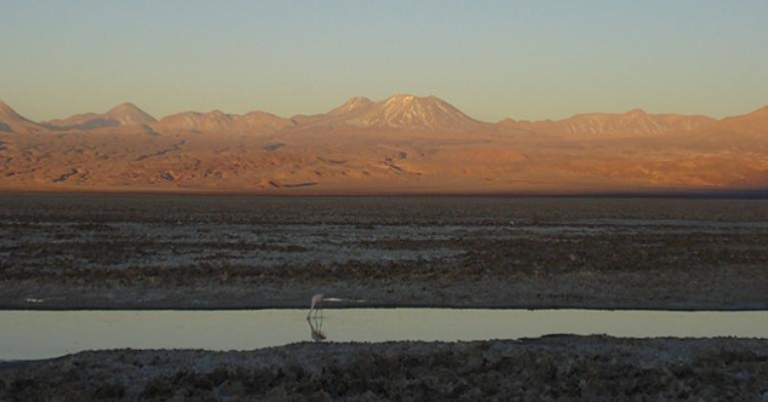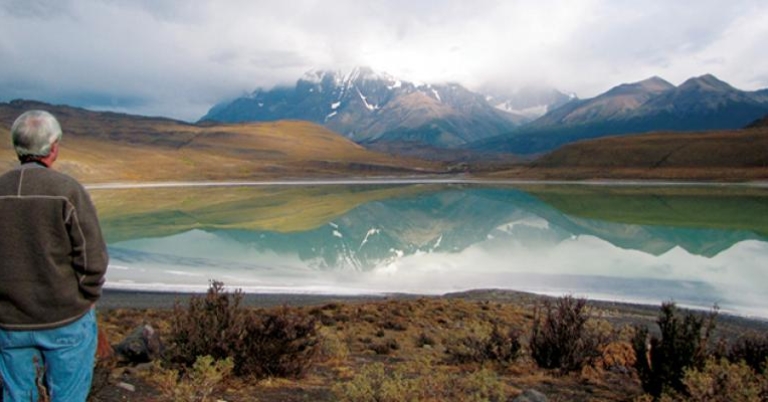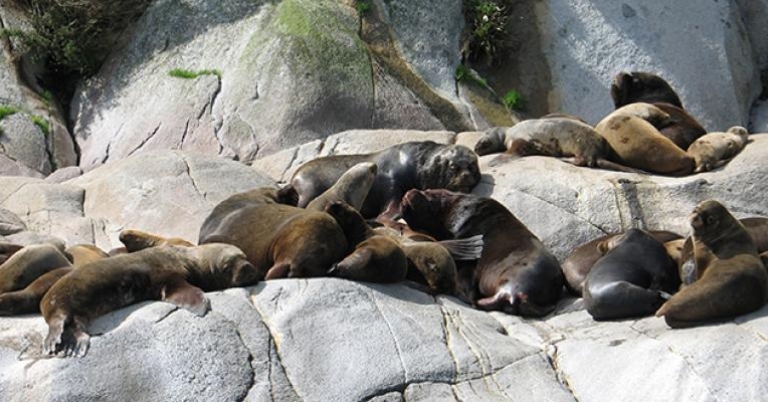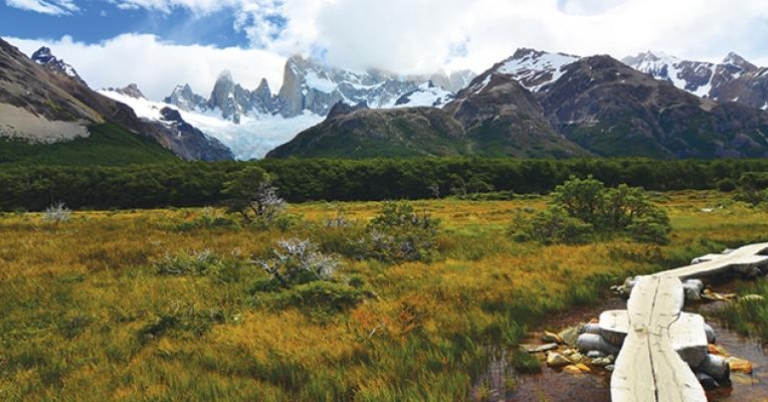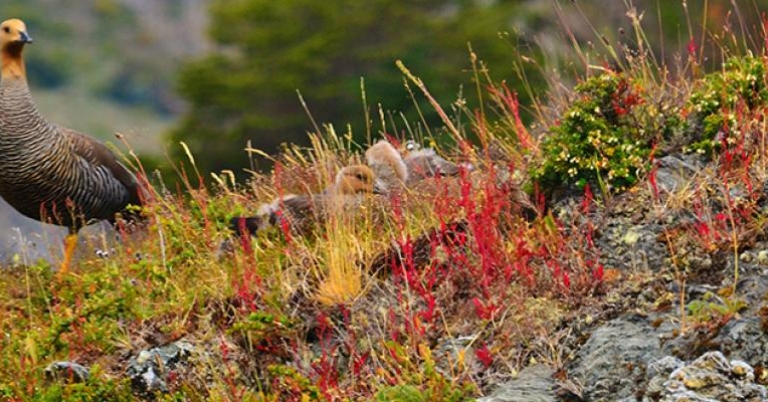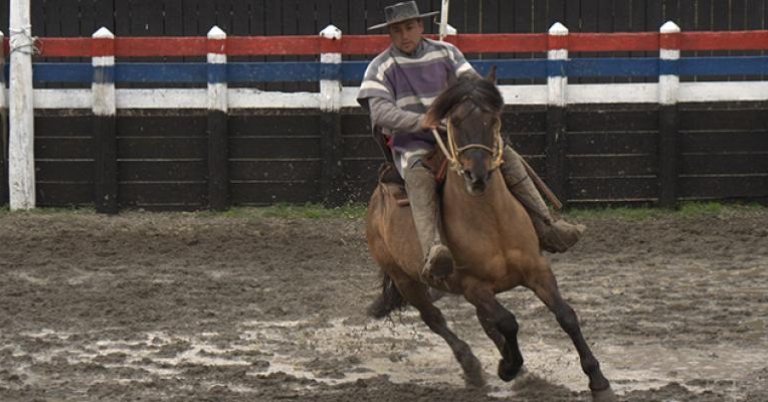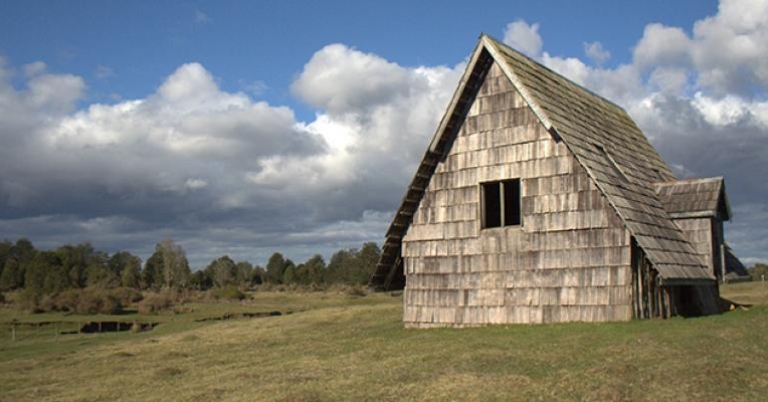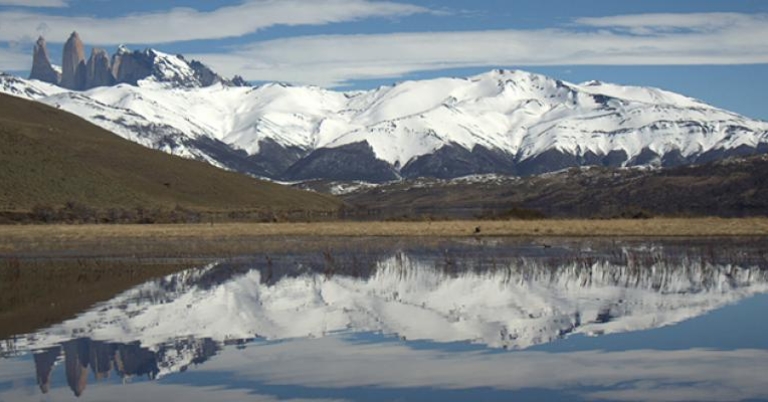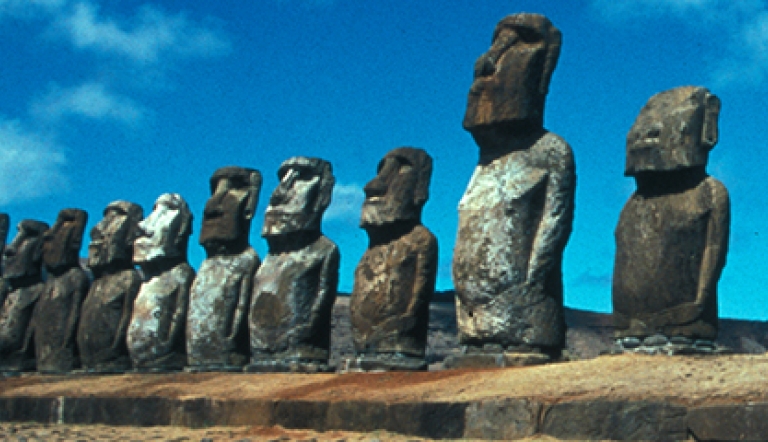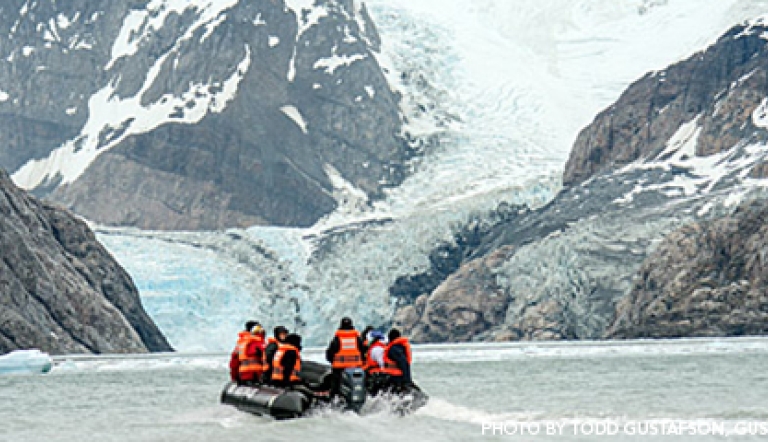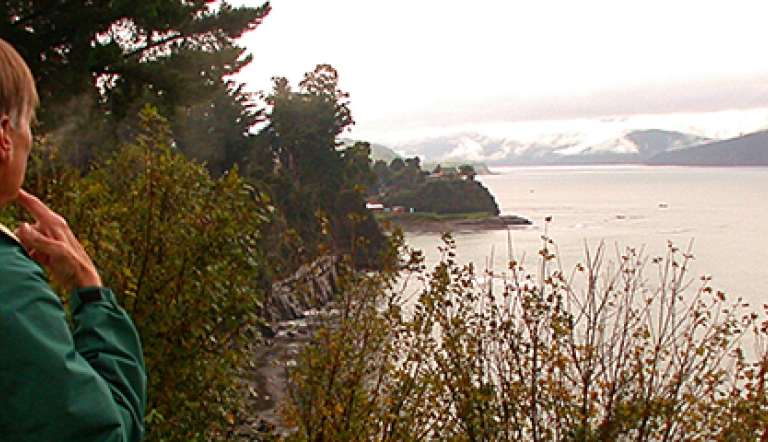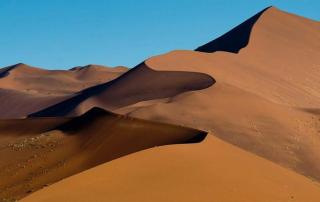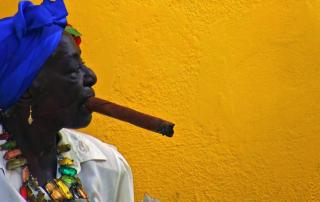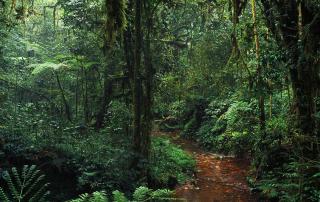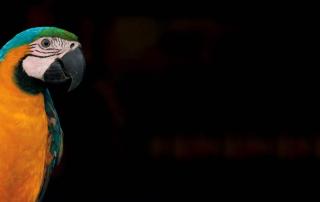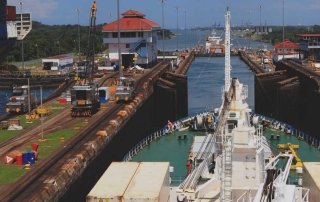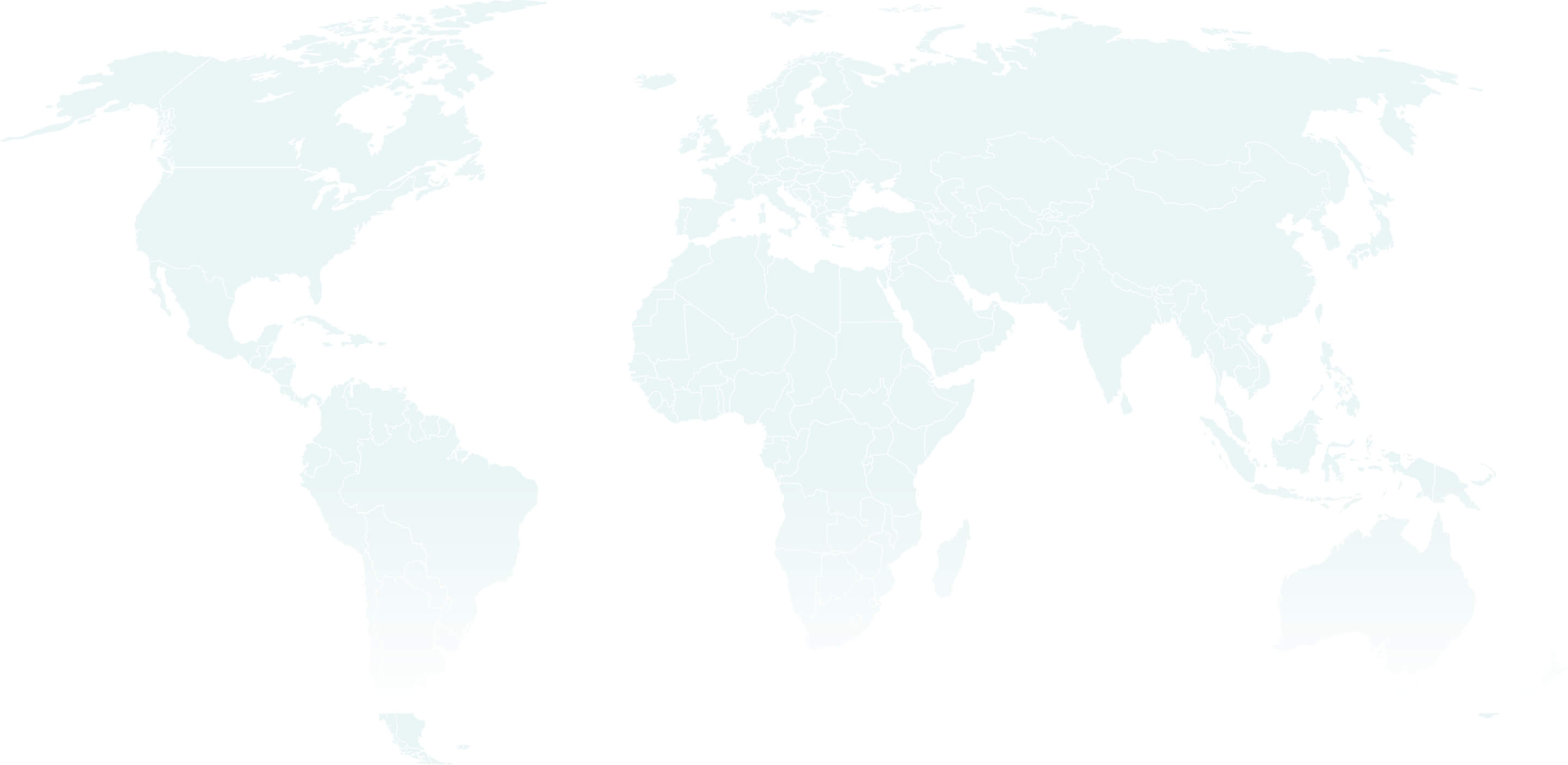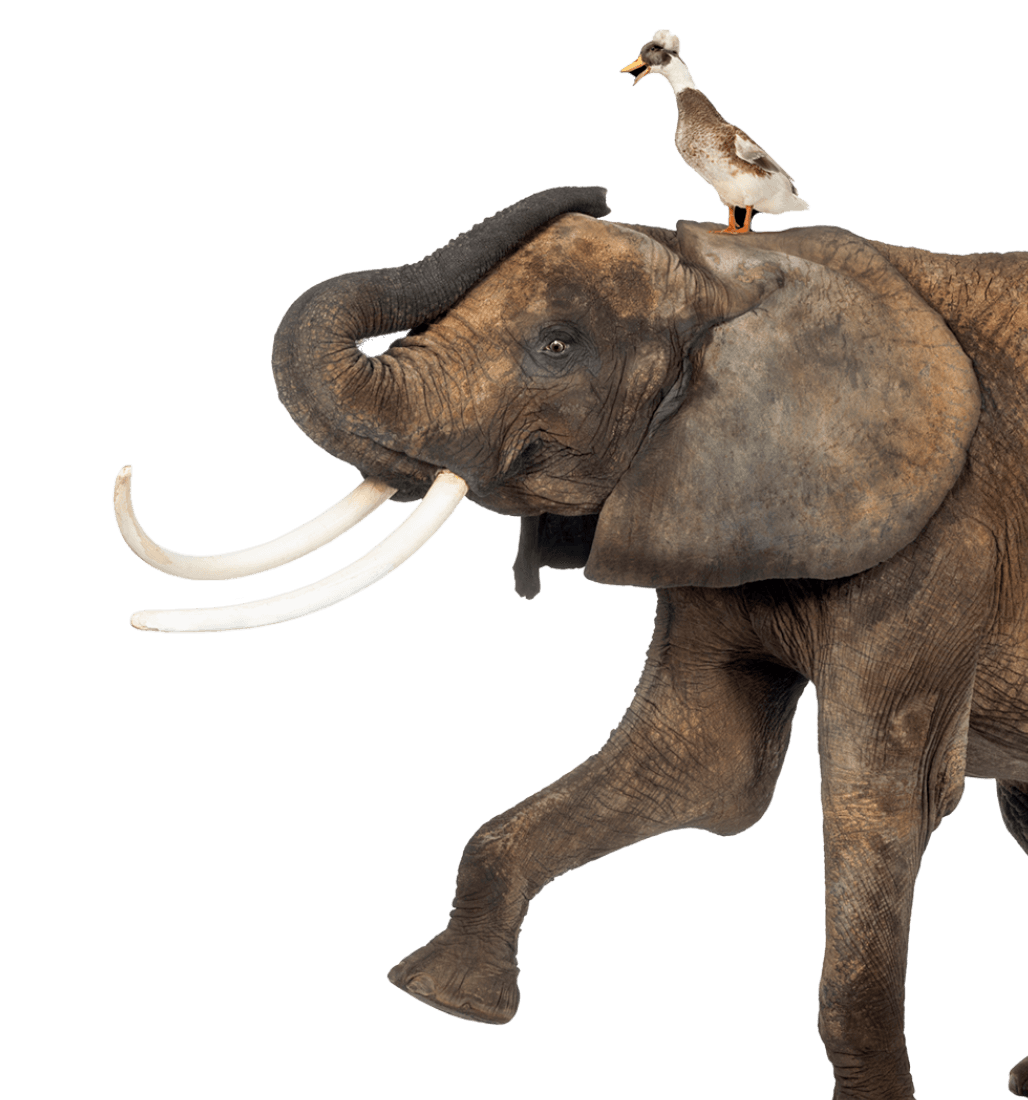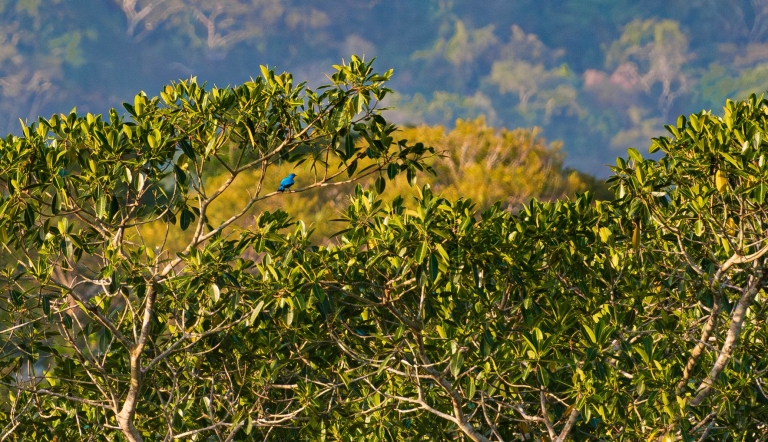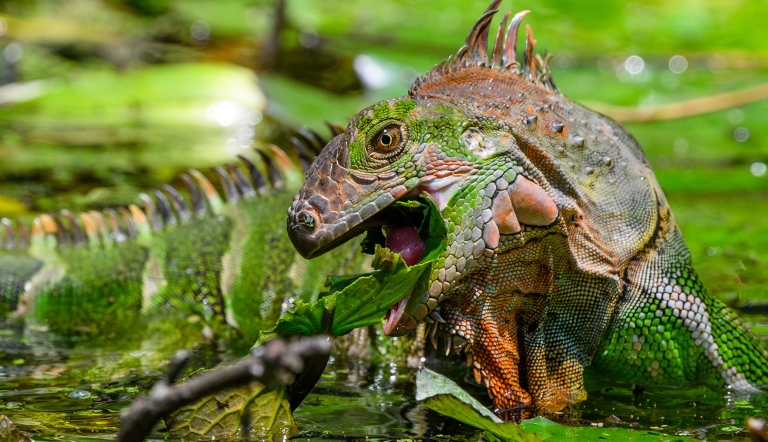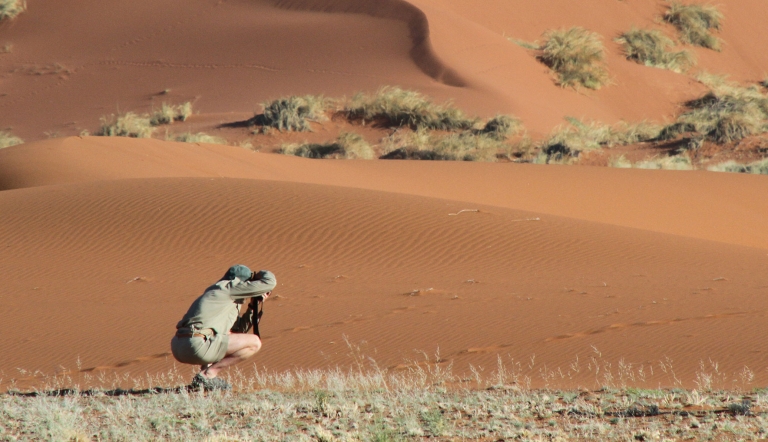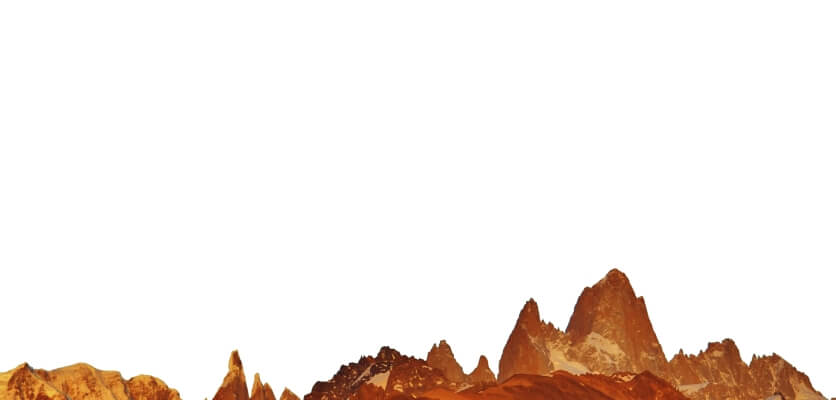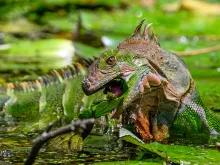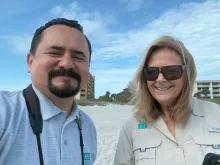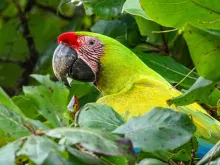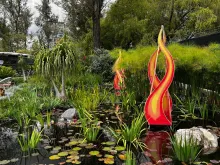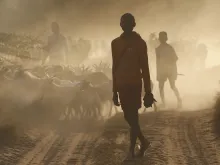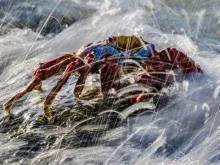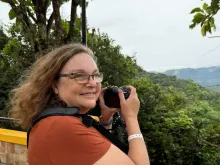A sprawling country, Chile stretches 3,000 miles through varied terrain and spans half of the South American continent. The country’s ever-changing landscape of glaciers, deserts, mountains, and forests is positioned in a narrow band that in most areas is only 100 miles wide.
Chile’s extreme length makes it a land of dramatic contrasts. The Atacama Desert in the north is the driest place in the world. Explorers of this arid, crater-dotted landscape may encounter flamingos wading in salt lagoons, geothermal geysers, and snow-capped volcanoes. In southern Chile, Patagonia’s wild, open frontier includes fields of glaciers, soaring snowy peaks, and glacial waterfalls. The Andean lake region offers travelers access to Chile’s rich diversity of flora and fauna. Fertile Andean fjords, a world-class wine industry, and miles of extensive coastline provide the ultimate experience for the passionate traveler.
Chile’s varying environment allows an array of species to inhabit its ecosystem. Depending on the area, travelers can spot different animals such as alpacas, pumas and foxes. Birding in Chile is equally exciting, as a variety of birds live here including the Andean Condor and the Magellanic Penguin.
Study Chile’s vibrant, modern culture and its Amerindian history by visiting archaeological remains, colorful native communities and the European-inspired architecture of Chile’s capital, Santiago. As an expert Chile tour operator, Holbrook invites travelers to explore the rich cultural and archaeological treasures and natural wonders that this diverse nation has to offer.
Geography
Chile is bordered by the Andes Mountains and Argentina on the east, the Pacific Ocean to the west, and Bolivia and Peru to the north. It’s a geographically diverse country: the Atacama Desert in the north is the driest desert in the world, while the Chilean Andes are home to more than three dozen active volcanoes. The country contains great mineral wealth, primarily copper and nitrates, but also gold, silver, iron, and coal. Central Chile has a temperate climate that lends itself to agriculture, while southern Chile is rich in forests and grazing lands and features a string of volcanoes, lakes, and glaciers. Fjords, inlets, canals, peninsulas, and islands make up the southern coast.
Ecology
There are 36 national parks and numerous national reserves, which together make up almost 20% of the country’s total area, ranking it seventh in the world in percentage of landmass protected. Due to the isolation caused by the surrounding mountains and ocean, much of Chile’s flora and fauna is endemic, including over 2,500 of its 5,100 identified plant species. Animals like chinchilla, vicuña, and one of Chile’s national symbols, huemul (South Andean deer) are native to the Andes. Pumas, foxes, seals, sea lions, and 530 different bird species can be found here, including the iconic Andean Condor.
Cuisine
Chilean cooking has been influenced by Spanish, indigenous, and international European cuisines. Its productive valleys, fields, and orchards yield a great amount of produce to feed the whole country and for export. Major agricultural products include a variety of fruits, onions, garlic, poultry, and beef. In addition, Chile’s long coastline and the oxygen-rich water of the Humboldt Current allow for an abundance of excellent quality fish and shellfish at the table, often in soups, stews, and chowders. The abruptly changing topography also provides for a variety of wines, the best-known of which are produced in the Central Valley region and rate among the finest in the world.
Entry & Exit Requirements
U.S. and Canadian citizens must have a valid passport to enter Chile. Passports must be valid for at least six months after the date of entry.
A visa is not required for visits up to 90 days.
A tourist card is required for anyone entering Chile from the United States and is issued upon arrival. This card allows visitors to stay for up to 90 days and will allow multiple entries. Keep the tourist card with your passport; it is important not to lose it, as you must present the card to Customs when you leave the country.
Health Information
IMMUNIZATIONS
The Centers for Disease Control recommends that all travelers be up to date on routine vaccinations such as measles-mumps-rubella (MMR) vaccine, diphtheria-pertussis-tetanus vaccine, varicella (chicken pox) vaccine, and your yearly flu shot before every trip.
There are no vaccinations required for entry into Chile, unless you are traveling from an endemic yellow fever area within six weeks prior to entry.
Some physicians recommend that travelers get hepatitis A and typhoid vaccines before visiting Chile.
Please consult your physician for additional information and recommendations based on your individual circumstances.
ALTITUDE SICKNESS
Upon arrival at locations of high elevation, shortness of breath and a pounding heart are normal responses to the lack of oxygen in the air. However, for some visitors, these symptoms can deteriorate into altitude sickness. Headache, extreme tiredness, dizziness, nausea, and loss of appetite are standard symptoms. Staying hydrated and well rested is important to adjust to the altitude. Avoiding heavy, fatty foods and alcohol in the days before arriving to altitude can help. Over-the-counter medications are also available to help prevent or alleviate symptoms. It’s advisable to avoid sleep medications, as they can slow breathing and respiration, which aid in getting the blood oxygenated while sleeping. Participants who take blood pressure medications should discuss this with their doctor as the medication can drop pressure too low at times.
SUN EXPOSURE
The effects of the sun can be damaging to the eyes and skin. Spending time outdoors exposes you to the sun’s harmful ultraviolet (UV) rays, even on cloudy days. To protect yourself from the sun, use a broad spectrum sunscreen of at least SPF 15, protect skin with clothing, wear a wide-brimmed hat and sunglasses, and drink plenty of fluids.
Currency
The currency of Chile is the Chilean peso, symbolized by a dollar sign ($) or CLP. One peso equals 100 centavos.
Electricity
The electrical current in Chile is 220V 50Hz AC. Travelers from the United States will need to use converters. Outlets take type C and L plugs.
Time Zone
The time zone in Chile is Chile Time Zone (UTC-03:00).
As of 2015, Chile does not observe Daylight Saving Time.
Departures and arrivals on flight schedules are listed in the local time.
Communications
Phones
Chile’s country code is +56.
To call Chile (from the U.S.): Dial 011-56-(xx-xxx-xxxx)
To call the United States: Dial 001-(xxx-xxx-xxxx)
Check with your cell phone provider to determine whether your cell phone will work internationally. Be aware that you are likely to incur additional charges for international use. Another option is purchasing a cell phone from a Chilean provider that uses a pre-pay (“prepago”) service.
Internet
Many hotels offer WiFi or Ethernet ports, and in larger cities Internet cafes and free wireless hotspots are becoming increasingly common.
You will find post offices in towns and cities all over the country. Mail service in Chile is more reliable than in other South American countries.
Reading List
Field guides
A Wildlife Guide to Chile
Sharon Chester
Chester’s splendid guide, featuring 120 color plates, covers the wildlife, plants and natural history of Chile from the Atacama Desert and Patagonia to Easter Island and Antarctica.
Birds of Chile
Alvaro Jaramillo
This compact, comprehensive guide with superb color plates also includes Antarctica, South Georgia and the Falkland Islands.
Birds of Southern South America & Antarctica
Martin R. de la Peña & Maurice Rumboll
With color plates, range maps and brief descriptions, this is a compact regional guide.
Plant Life in the World’s Mediterranean Climates
Paul Dallman
Richly illustrated, clearly written and engaging, this book is an ecological overview of the landscapes, plants and vegetation types found in Mediterranean climates.
Maps
Chile Adventure Map
National Geographic
Printed on tear- and water-resistant paper, this colorful map shows topography, sites, cities and roads from the Atacama to Tierra del Fuego in a series of strip maps at a scale of 1:1,750.000.
Chile Map
Borch Maps
A handy laminated road map of Chile in full color at a scale of 1:2,000,000, with supplementary maps.
Lake District, Araucania: Argentina & Chile
Zagier & Urruty Maps
This regional map (1:400,00) covers the mid-section of Chile and Argentina from Bariloche across to Puerto Montt and Temuco.
Patagonia and Tierra del Fuego Map
ITMB
This handy map shows all Patagonia on one side (1:2,000,000), with a more detailed map of Tierra del Fuego (1:750,000) on the reverse.
Santiago & Central Chile Map
ITMB
A travel map of Santiago, shown at a scale of 1:12,500 including an inset of the subway system. Plus, on the reverse, a map of central Chile at a scale of 1:750,000 with an inset of Easter Island.
Guidebooks
Insight Guide Chile
Insight Guides
This glossy guide is a full-color introduction to the land, people and history of Chile, written by a team of experts. Brief background essays highlight important topics, and there is some practical travel information interspersed throughout.
Lonely Planet Chile
Lonely Planet
This practical guide includes a chapter on Easter Island in addition to a comprehensive overview of Chile, its history and culture.
Culture Smart! Chile
Caterina Perrone
A concise and practical guide to local customs, etiquette and culture.
Wallpaper City Guide Santiago
Rachael Moloney
A stylish, thin (it fits in your back pocket) city guide compiled by the design magazine Wallpaper’s local reporters. Well-organized, with chapter tabs, many photographs and of-the-moment recommendations.
Rough Guide to Chile
Shafik Meghji
A comprehensive guide to Chile in the hip, literate and very infomative Rough Guide style. It's divided cleanly between practical information and illuminating background on culture and history.
Natural History
Natural Patagonia: Argentina and Chile
Marcelo D. Beccaceci
An informative photographic journey through the breathtaking landscapes and wildlife of Patagonia. Featuring 120 color photographs, presented in Spanish and English.
Voyage of the Beagle
Charles Darwin
The wide-eyed tale of a young man on a five-year voyage that changed his life—and our way of thinking about the world. First published in 1839, it’s still a marvelous introduction to the wildlife, nature and allure of South America.
Voyaging Southward from the Strait of Magellan
Rockwell Kent
An illustrated account of Rockwell’s foolhardy voyage with a madman through magnificent Tierra del Fuego in a jury-rigged lifeboat. Both the text and striking woodcut illustrations communicate this dangerous landscape’s dynamic character.
History & Culture
Forgotten Continent
Michael Reid
Economist editor Reid draws on his years in the cities, presidential palaces and shantytowns of Central and South America in this portrait of a region rich in oil, farmland and culture, with consideration on its prospects in the face of globalization.
My Invented Country
Isabel Allende
Novelist Allende ruminates on her upbringing in Chile, interweaving memories of South America with her feelings for the United States, where she has lived since the assassination of her uncle, Chilean president Salvador Allende, on September 11, 1973.
The Dictator’s Shadow: Life Under Augusto Pinochet
Heraldo Muñoz
A gripping memoir of life in Chile under Pinochet, the horrors perpetrated by his regime, his complex character and what it took to overthrow him by Chile’s current ambassador to the United Nations.
Five Decades, Poems 1925-1970
Pablo Neruda
A bilingual edition of 138 poems by the great Pablo Neruda, drawn from his entire career. Neruda is the quintessential South American poet: lyrical, engaging and bristling with life.
Gabriela Mistral: Selected Prose and Prose-Poems
Gabriela Mistral & Stephen Tapscott
Selected prose by the Chilean Nobel laureate as edited and translated by Stephen Tapscott. Part of the Texas Pan American Literature in Translation Series.
Ines of My Soul
Isabel Allende
Allende turns the amazing life of Spanish conquistadora and founder of Santiago, Inés Suárez (1507- 1580), into a gripping novel.
Chilean Wine, The Heritage: A Journey from the Origins of the Vine to the Present
Rodrigo Alvarado
Alvarado does justice to the long winemaking tradition of Chile in this narrative, which explores the history of Chile’s vineyards and wine production. Ideal for anyone on the path to becoming a connoisseur, or interested in gaining a deeper understanding of this long-standing tradition in Chile.
